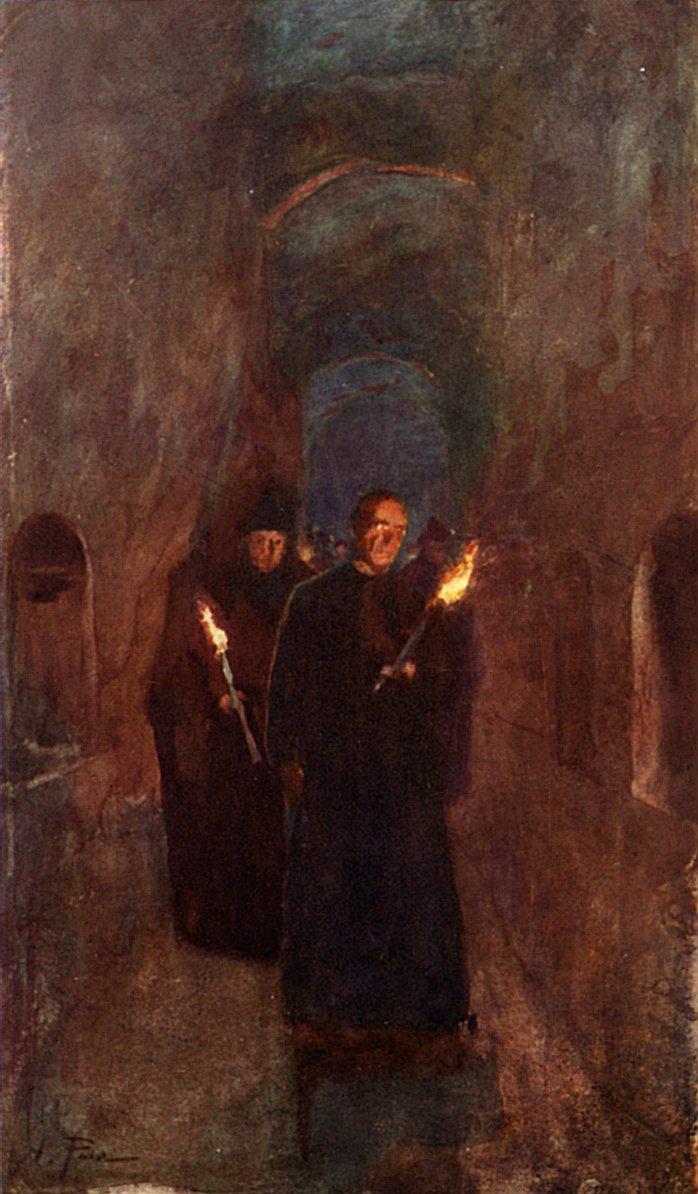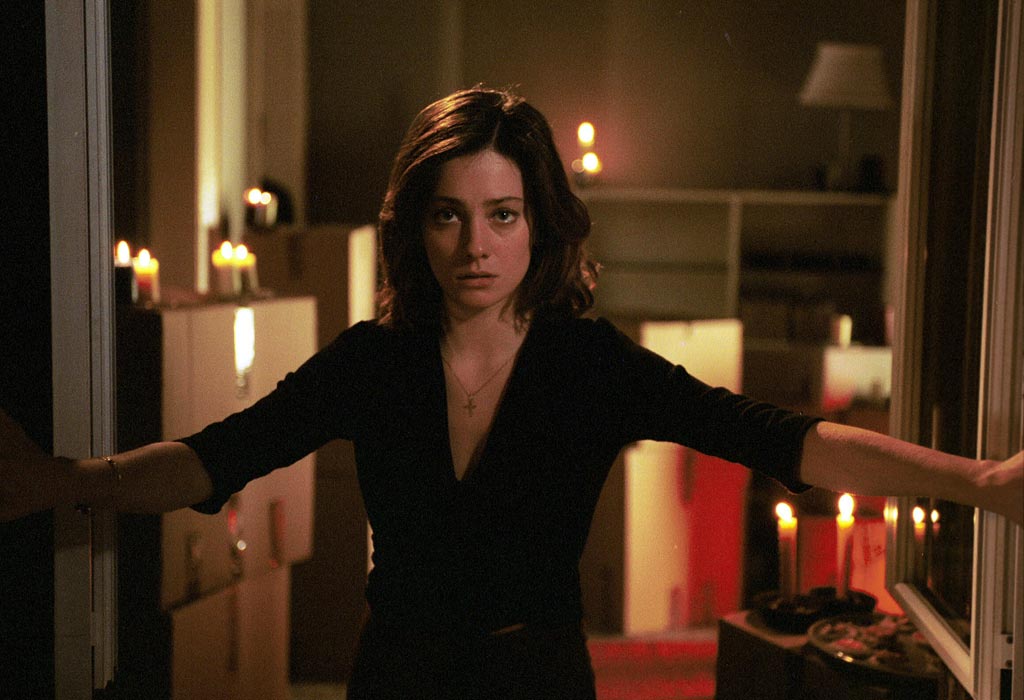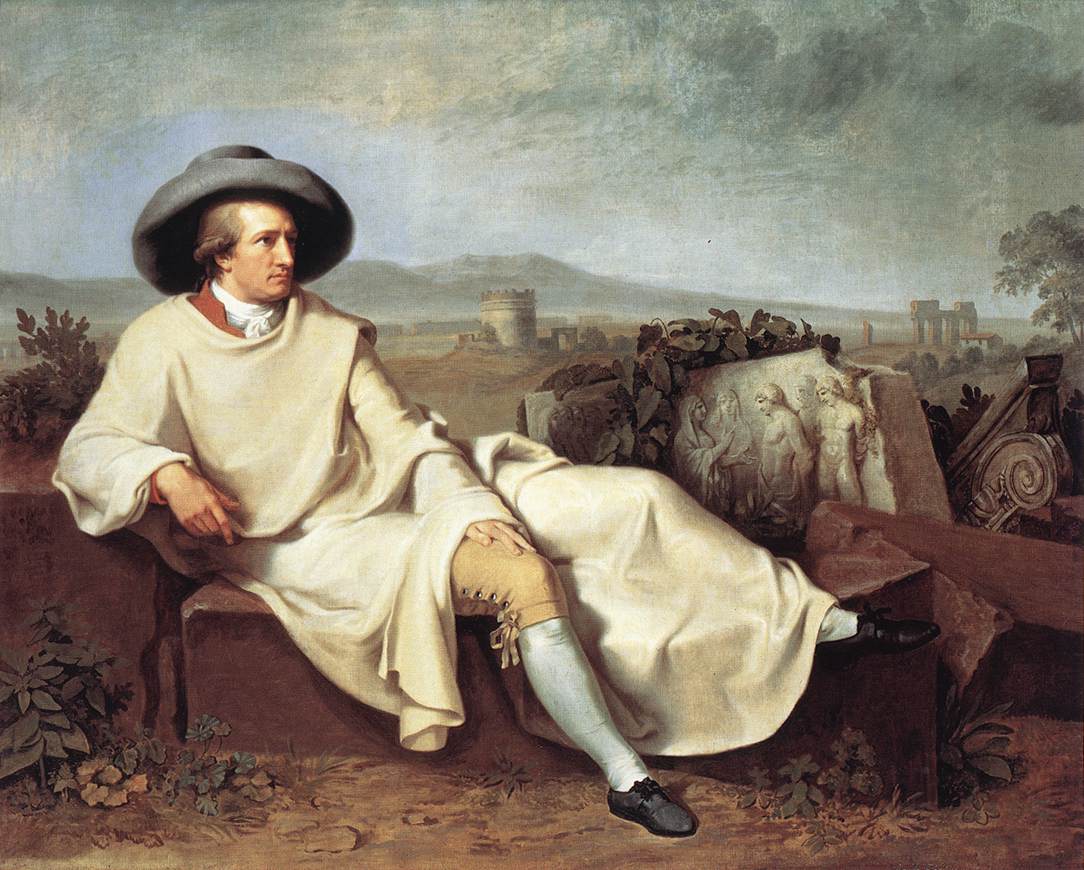The New Catacomb
 Sunday, January 12, 2014 at 12:08
Sunday, January 12, 2014 at 12:08  A famous film, whose anonymity I will maintain at least until the arrival of the Google hounds, is often mined for the observation that the tragic thing in life is that everyone has his reasons. Well, everyone does have his reasons. But these reasons need not be obscure or contrary or even very different than anyone else's; the reasoner simply needs to think they are his and his alone and exert that greatest of rights, free will. The selfsame observation has been used to buttress a notion of relativity that some soft-minded charlatans rely upon to inject chaos into our existence, which they then deem an accurate reflection of the cosmos, our souls (mere illusions, they note), and ultimately the patchwork nonsense they pass off as philosophy. We all know such folk, and theirs is silly, shallow talk. They have nothing of any originality to express and so claim that everyone has his own expressions, intelligible or not. Some people, on the other hand, really have their reasons, reasons as astonishingly powerful as any in our tragic fiction, and the boldest among them resolve to act accordingly. Which brings us to this miniature masterpiece.
A famous film, whose anonymity I will maintain at least until the arrival of the Google hounds, is often mined for the observation that the tragic thing in life is that everyone has his reasons. Well, everyone does have his reasons. But these reasons need not be obscure or contrary or even very different than anyone else's; the reasoner simply needs to think they are his and his alone and exert that greatest of rights, free will. The selfsame observation has been used to buttress a notion of relativity that some soft-minded charlatans rely upon to inject chaos into our existence, which they then deem an accurate reflection of the cosmos, our souls (mere illusions, they note), and ultimately the patchwork nonsense they pass off as philosophy. We all know such folk, and theirs is silly, shallow talk. They have nothing of any originality to express and so claim that everyone has his own expressions, intelligible or not. Some people, on the other hand, really have their reasons, reasons as astonishingly powerful as any in our tragic fiction, and the boldest among them resolve to act accordingly. Which brings us to this miniature masterpiece.
Our protagonists are two, both Europeans and leading archaeologists despite their youth, and both enamored with the treasures of ancient Rome. We begin in Kennedy's rooms in the Eternal City, where the young Englishman, "though little more than thirty," is enjoying the fruits of his "European reputation":
[He] was provided with that long purse which either proves to be a fatal handicap to the student's energies, or, if his mind is still true to his purpose, gives him an enormous advantage in the race for fame. Kennedy had often been seduced by whim and pleasure from his studies, but his mind was an incisive one, capable of long and concentrated efforts which ended in sharp reactions of sensuous languor. His handsome face, with its high, white forehead, its aggressive nose and its somewhat loose and sensual mouth, was a fair index of the compromise between strength and weakness in his nature.
The description above could be of any lout or playboy; it so happens to caption one of the world's greatest experts on Roman ruins. His companion this cold night is Julius Burger, a young man "of a very different type":
He came of a curious blend, a German father and an Italian mother, with the robust qualities of the north mingling strangely with the softer graces of the south. Blue Teutonic eyes lightened his sun-browned face, and above them rose a square, massive forehead, with a fringe of close yellow curls lying round it. His strong, firm jaw was clean-shaven, and his companion had frequently remarked how much it suggested those old Roman busts which peered out from the shadows in the corners of his chamber. Under its bluff German strength there lay always a suggestion of Italian subtlety, but the smile was so honest, and the eyes so frank, that one understood that this was only an indication of his ancestry, with no actual bearing upon his character.
One cannot help but notice the lengthier profile, the juxtaposition in name of that most common German word for citizen and the most renowned Roman citizen of all time. Yes, Kennedy's companion is a curious cross-breed, and a man on the cusp of being "promoted to the chair of the greatest of German universities." And as much as Kennedy has little trouble finding willing females as respites between mountainous projects, so does Burger singularly lack the social graces to make use of his imminent glory. If being appointed to a prestigious university chair at a young age would, in any case, change the minds of most young women.
There are other differences, of course, and these are fleshed out in the heated discussions these academic rivals have that freezing night. It seems that while Kennedy has just finished another torrid affair that threatened to erupt into full-fledged scandal, Burger has been particularly diligent and unearthed a find of immense magnitude. In fact, despite his calm tone, his discovery would probably become an event like no other in the field of Roman Christian archeology:
Its date is different from that of any known catacomb, and it was reserved for the burial of the highest Christians, so that the remains and the relics are quite different from anything which has ever been seen before. If I was not aware of your knowledge and of your energy, my friend, I would not hesitate, under the pledge of secrecy, to tell you everything about it. But as it is I think that I must certainly prepare my own report of the matter before I expose myself to such formidable competition.
Sadly perhaps, the competition of yesteryear has been overcome by information technology that makes the hiding of such a crypt in our days well-nigh impossible; Burger has, however, succeeded so far. So after jabbing Kennedy for a little more information on the latest flavor of the month – vicarious living forever being the refuge of the superior mind – he offers his colleague a chance to experience the tombs themselves. This necessitates a long and clandestine midnight route and a few appurtenances that Burger presciently brings along, but with which he does not bother to furnish the eager Englishman – and maybe that is enough from my side.
Most know the story's author as the creator of arguably the greatest character in the history of fiction, but Conan Doyle had many interests and a concinnity of style that belied his Victorian origins. While I cannot claim to have ventured far into his spiritual writings, all Conan Doyle's works of suspense are clever, brilliantly polished, and, regardless of the necessary contrivances of plot, often startling in their fundamental truths. He may take a blissful field on a cloudy afternoon, a northern ship adrift among glaciers, an old pilot, or a South American temperament, and craft around it the vilest of fates. A South American temperament? Can one really construct a tale on the tendencies and impulses of an abstract stereotype? Why not? After all, we have whole modern novels based on the incessant flow of its narrator's consciousness, even if that narrator is an animal or dead or otherwise indisposed. A bit gimmicky, I would guess, but then again all plot can be considered gimmicky if it ends with a trick or two. So you might want to consider what could possibly be made out of Italian subtlety.




